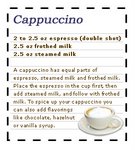There was another study just published in the August 2006 edition of the International Journal of Cardiology regarding vitamin C2. Researchers out of Japan studied whether vitamin C affected certain responses within the body to exercise in 21 men who suffered a heart attack at least month earlier. The participants underwent exercise testing on two occasions. The first time, they exercised two hours after an oral dose of two grams of ascorbic acid. The second time they exercised without supplemental vitamin C. Although there was no change in blood pressure or heart rate with or without ascorbic acid, researchers indicated that the heart rate response to peak exercise was significantly higher in men given ascorbic acid, which is an indication of better heart function. Dr. Kato, from the study, noted, "This data suggests an antioxidant vitamin, such as ascorbic acid, can affect a recovery of sympathetic dysfunction caused by injury to excessive oxidative stress and improve exercise intolerance."
There was a study published in the July-August 2006 edition of the journal Nutrition regarding healthy aging3. Authors noted that aging is associated with chronic inflammation and oxidative stress, which can lead to impairment of immune function, therefore increasing risk of death. Researchers supplemented diets of middle-aged, prematurely aging mice and non-prematurely aging mice for 15 weeks with vitamins C and E, zinc, selenium and beta carotene. White cells from the treated animals were then compared to a control group. It was found that white cell function improved in animals consuming antioxidants, which indicated there was improvement in immunity. Furthermore, after antioxidant supplementation, measures of oxidative stress were markedly decreased in both the prematurely aging and the normal animals. Not surprisingly, effects of the antioxidants were stronger in the prematurely aging animals compared to the normal animals. Researchers concluded that consumption of adequate levels of antioxidants may encourage healthy aging, especially in prematurely aging animals.
Along with aging comes the risk of being admitted to a nursing home. An interesting study was performed in the Netherlands and published in the September 2006 edition of the American Journal of Clinical Nutrition4. Researchers noted that the prevalence of vitamin D deficiency in nursing home patients was high. Their objective was to determine whether lower levels of vitamin D in the blood increase one's risk of future admission to a nursing home along with early death. Over 1,200 independent people over age 65 participated in what is known as the Longitudinal Aging Study Amsterdam. These individuals were followed for six years, or up to time of death, until April 2003. Of the participants, almost 47% were considered either vitamin D deficient or vitamin D insufficient when first entering the study. During follow up, 138 (11%) were admitted to nursing homes and 380 (30%) died. Amazingly, after adjustment for potential confounders, risk of admission to a nursing home was approximately 350% in the vitamin D deficient. For the vitamin D insufficient, risk of admission to a nursing home was approximately 275%. Even those with only borderline low levels of vitamin D had over 190% increased risk of admission compared to those with higher levels of vitamin D. Lower vitamin D levels were also associated with higher mortality risk, but the association wasn't considered significant after adjustment for frailty indicators. Researchers concluded that lower levels of vitamin D in older people was associated with a greater risk of future nursing home admission and may be associated with mortality.
Finally, there was another study regarding longevity published in the current edition (September 13, 2006) of the Journal of the American Medical Association (JAMA)5. Green tea consumption was studied over an 11-year period up to 2005. Researchers analyzed information on over 40,000 Japanese adults between ages 40 and 79 years old. After the 11-year study, 4,209 adults had died. Adults who drank the most green tea were least likely to die from cardiovascular disease, especially stroke. Men who consumed at least five cups of green tea each day were 12% less likely to die from any cause. Women who drank five cups or more of green tea each day were 23% less likely to die from any cause and 31% less likely to die from cardiovascular problems.
Vitamin C has been, and continues to be, a mainstay of adequate nutritional supplementation. The brilliant Linus Pauling, the only person to be awarded the Nobel Prize twice unshared, correctly pointed out the immune, cellular and cardiovascular benefits of several thousand mgs per day of vitamin C going back to the 1960s. He has been proven correct by numerous published studies over the last decade. Dr. Pauling lived to 93 while most of his peers lived only to 60 or 70 on average. Dr. Pauling consumed thousands of mgs of vitamin C daily for decades based on his research. Quite clearly the RDA of 60 mg will not provide optimal benefits; it will prevent scurvy but that is not our current health care crisis issue. Most adults should be consuming 500 mg to 2,000 mg a day of vitamin C. Vitacost offers a wide selection of various vitamin C products, including Ester-C®, a non-acidic, ascorbic acid product that is well-tolerated and generally maintains higher blood levels than ordinary ascorbic acid for a longer period of time. I also strongly recommend quercetin to be taken with vitamin C; they are very synergistic. Quercetin is found in apples and red wine and is a very powerful antioxidant.
Although consuming green tea has tremendous benefits, drinking five to eight cups a day may not be realistic for many people. NSI® offers standardized green tea extract capsules equivalent to several cups of green tea along with other potent antioxidant polyphenol nutrients. It is wonderful to know there are so many safe, inexpensive and natural ways to promote and protect your health proven by 21st century science.











No comments:
Post a Comment